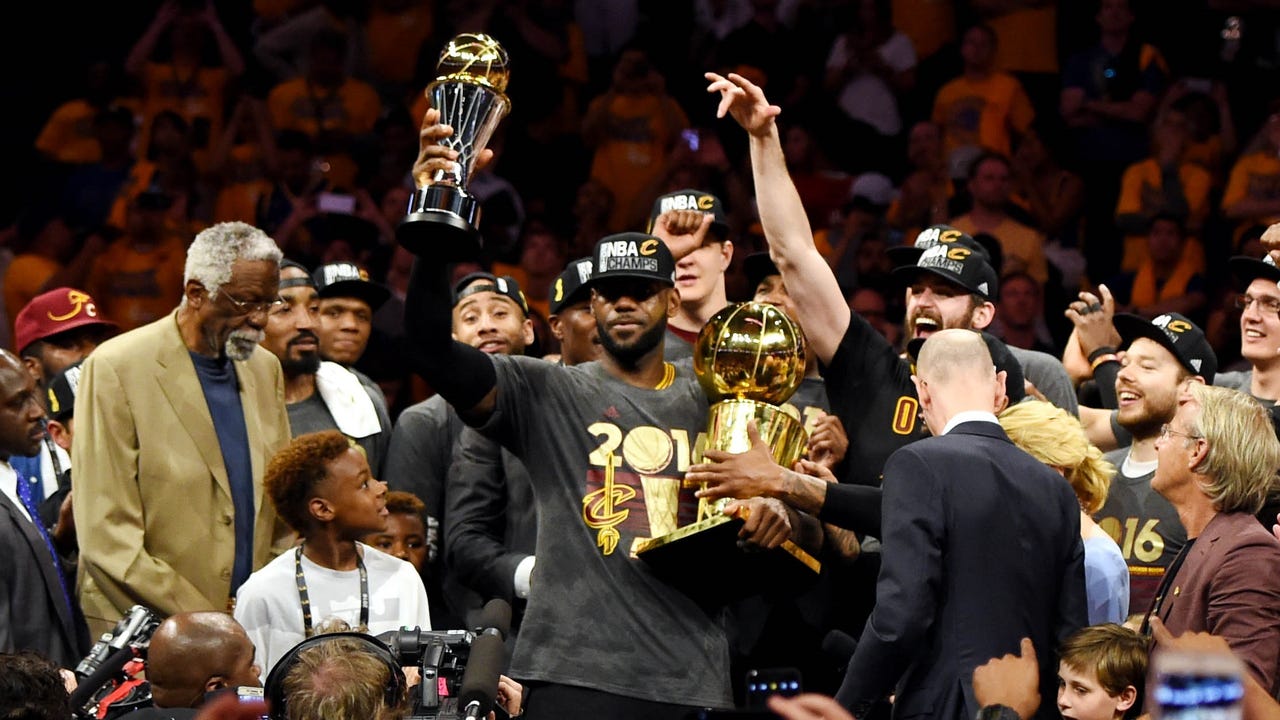How the NBA Finals validated Kyrie Irving

OAKLAND – LeBron James understood what was necessary in the NBA Finals.
Did Kyrie Irving? Question answered.
Irving made the biggest shot of his career – a game-winning 25-foot three-pointer with 53 seconds left in the fourth quarter – giving the Cavs a three-point lead, James added a free throw with 10-seconds left and Cleveland beat the Golden State Warriors 93-89 in Game 7 of the NBA Finals on Sunday.
Irving scored 26 points and proved that he could handle the big stage, play alongside other stars and do what needs to be done to a win a championship.
“I don’t necessarily know if I was looking for validation,” Irving told Paste BN Sports. “I’m glad that we could make history, and we did it with a team that's very resilient and understood what was at stake for us. I’m glad that would be that one team in NBA history to come back from 3-1 in the Finals.”
Against Golden State, Irving averaged 27.1 points, 3.9 assists, 3.9 rebounds and 2.1 steals and shot 46.8% from the field and 40.5% on three-pointers. He scored at least 30 points in three games, including 41 on 17-of-24 shooting in Game 5, which turned the series around for Cleveland, and 20 in the first half of Game 6.
Irving said he had a Mamba – Kobe Bryant – mentality in Game 7.
“I don't think my mind has really contemplated so many scenarios ever in the last 48 hours,” Irving said. “You know, you're thinking about win-loss, what you're going to do out there? What's the effect you're going to have on the game? What are your teammates going to do? There was so much going on in my mind that when I started out the game, I actually communicated with my teammates, 'All right, I've got to really just settle into this moment.' ”
He did. Irving scored 17 points in the second half, including 12 in the third quarter, and his shot with less than a minute to play lifted Cleveland to the championship.
Irving caught the ball with Klay Thompson guarding. The Warriors switched, leaving Irving one-on-one against Stephen Curry. It was well-defended, and Irving still made the shot.
“It was a shot I’ve been practicing for a while,” Irving said. “I practice it during my offseason workouts, my in-season workouts. It was really just the trust from my teammates and just being in that moment.”
What was he thinking when the basketball left his hands?
"I'm just hoping it goes in. But when it does, I'm thinking about getting Klay and Steph,” Irving said. “Those guys have been kind of leading that three-point line the whole entire series, so that's all I'm really thinking about is just getting to those guys after that shot.
“It was 89-89 for a good portion of the game, especially in that fourth quarter, so I was just thinking the next team that scores has a great chance at winning the championship, and I hope that we can be the team that's on that end.”
In the playoffs, he averaged 25.2 points, 4.7 assists and 3.0 rebounds and shot 47.5% from the field. When Irving scores at least 20 and has four or five assists, the Cavs offense is rolling. With James on his team and often acting as the point guard, Irving is never going to be a player who averages eight or nine assists.
Irving is a scorer and an exceptional shotmaker whether from three-point range, midrange or at the rim. His ability to use creative angles off the glass is unique, even in the NBA.
Irving showed remarkable growth in the past season, coming back from a fractured kneecap that ended his Finals in Game 1 last season in Golden State.
“I tried to downplay it the whole entire season of the emotional kind of stress that I was putting on myself from getting hurt, not being there with my teammates, watching it on TV,” Irving said.
Then, Irving and James had to figure out how to be effective together. In an interview during the Eastern Conference playoffs, Irving told Paste BN Sports, "Sometimes my personality got construed in terms of what I wanted in a team environment and what I could be around other great players. … I have no problem fitting in with other great players.”